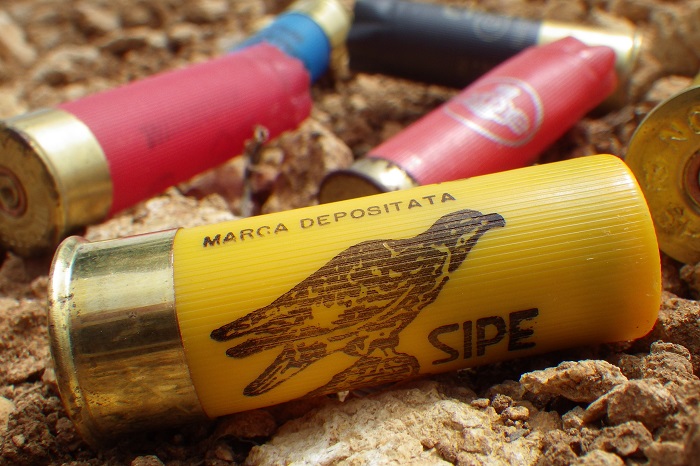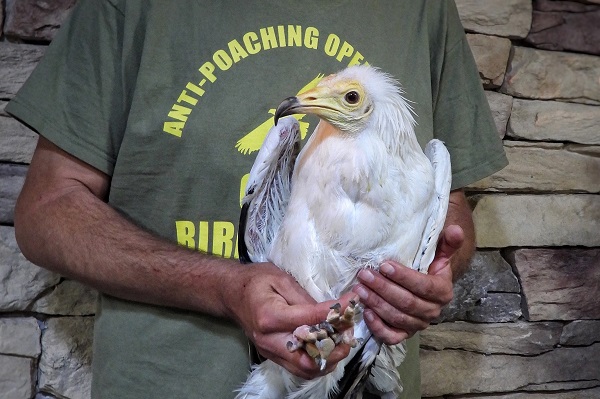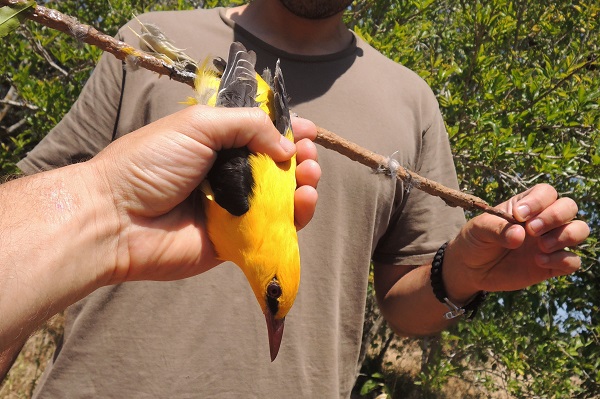Who targets wild birds?
Bird hunting and bird trapping are leisure activities in almost every corner of Europe. People almost always refer to their hobby as a 'tradition', but rarely for the purpose of food or big business.
Hunters

Hunters - i.e. persons with a valid hunting permit such as a gun licence or a hunting licence - are authorised to recreationally kill huntable species of animals at the legally stipulated times ("open seasons and times"). As a general rule, they use firearms such as shotguns or high calibre rifles for this purpose. In some countries, hunters are allowed to use traps to catch birds.
Bird trappers
Bird trappers use traps and nets to catch and keep wild birds. Apart from a few exceptions, it is forbidden to catch birds in Europe. Bird trappers mostly see themselves rooted in an old tradition and they practice the activity as a hobby. Nevertheless, the captured animals are exploited - they either end up kept and confined as pets in cages and aviaries, as live decoys for hunting, or they are killed and eaten.
Poachers
A poacher is a person that illegally hunts and kills animals, whether they are not authorised to hunt legal species (i.e. no hunting permit), or whether they hunt protected species even though they have a hunting license. In short: killing a Collared Dove (huntable species) without a hunting licence is poaching. Killing a Sparrowhawk (fully protected species) is also a poaching.
A large part of the hunting offences observed in Europe are committed by hunters. The following applies: not every hunter is a poacher, but almost every poacher is a hunter.
Th pet trade

Many people do business with wild birds. The market for dead or alive wild birds is large and is ruthlessly served by unscrupulous pet traders.
Colourful or singing species, such as the Goldfinch, are sought-after cage birds. Hunting thrushes or quails often involves live decoys, for which hunters spend a lot of money. Bird collectors and falconers pay large sums for rare species, such as the Bonelli's Eagle or the Gyrfalcon. Taxidermy of rare and colourful birds are popular and fetch large sums of money. In countries where songbirds are delicacies, large sums are paid for dead Eurasian Blackcaps or other warblers.
In almost all cases, wild bird trades involve individuals that are taken from the wild - it is entirely illegal. The perpetrators usually try to declare the birds as originating from captivity.
Farmers, pigeon fanciers and poultry farmers
Some bird species are considered a thorn in the side of certain groups. For example, many farmers fear damage from starlings (in fruit growing), pigeons (in vegetable growing) or crows (in agriculture) and mount pressure on regulatory authorities and hunters in the respective countries to increase shooting quotas.
Goshawks and Peregrine Falcons often take free-range chickens or racing pigeons. Poultry farmers and pigeon keepers therefore occasionally resort to illegal methods against birds of prey in order to protect their animals from predation.
Traditionalists

Bird-trapping and bird hunting is often justified by tradition. It is generally a matter of identity, especially for small ethnic groups, who consider that hunting traditions are as important as dialects and handicrafts.
Anyone who feels that they are being run over by supposedly uncontrollable powers (such as a central government or the EU) will quickly fall for the simple slogans of some regional politicians, who often instrumentalise hunting traditions in order to gain votes and support in elections. Bird-trapping and hunting has become a weapon of political interest.
Scientific bird ringing
Birds are omnipresent 'measurestick' for the world, but much has not yet been researched. Bird migration in particular is a mysterious phenomenon. Without a broad knowledge of the biology and migratory behaviour of our birds, they cannot be consistently protected. Scientific research is the most important building block in any protection concept.
We therefore expressly support scientific bird-trapping and ringing schemes, which can only be carried out by permitted experts with a lot of heart and soul and official approvals, without causing harm.






